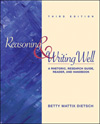 |
1 |  | 
We decided to offer Juanita the job; she was the most perfect candidate. |
|  | A) | We decided to offer Juanita the job; she was the best candidate. |
|  | B) | We decided to offer Juanita the job; she was the bestest candidate. |
|  | C) | We decided to offer Juanita the job; she was the most best candidate. |
 |
 |
2 |  | 
If there's a more funnier person in the world than Janet, I don't know who it would be. |
|  | A) | If there's a funnier person in the world than Janet, I don't know who it would be. |
|  | B) | If there's a more funniest person in the world than Janet, I don't know who it would be. |
|  | C) | If there's a most funny person in the world than Janet, I don't know who it would be. |
 |
 |
3 |  | 
The engine in Felicia's car has been running much quieter since she had it tuned up. |
|  | A) | The engine in Felicia's car has been running much quietly since she had it tuned up. |
|  | B) | The engine in Felicia's car has been running more quieter since she had it tuned up. |
|  | C) | The engine in Felicia's car has been running more quietly since she had it tuned up. |
 |
 |
4 |  | 
To get rid of those cockroaches, you're going to have to use a more fatal poison. |
|  | A) | To get rid of those cockroaches, you're going to have to use a stronger poison. |
|  | B) | To get rid of those cockroaches, you're going to have to use a fataler poison. |
|  | C) | To get rid of those cockroaches, you're going to have to use a more stronger poison. |
 |
 |
5 |  | 
Dawna felt badly when she learned that she would be unable to attend Maria's bridal shower. |
|  | A) | Dawna felt badly when she learned that she would be unable to attend Maria's bridal shower. |
|  | B) | Dawna felt bad when she learned that she would be unable to attend Maria's bridal shower. |
|  | C) | Dawna felt badder when she learned that she would be unable to attend Maria's bridal shower. |
 |
 |
6 |  | 
The two guys in the dorm room next to us played their music so loud that we thought the wall between us would crumble. |
|  | A) | The two guys in the dorm room next to us played their music so loudest that we thought the wall between us would crumble. |
|  | B) | The two guys in the dorm room next to us played their music so loud that we thought the wall between us would crumble. |
|  | C) | The two guys in the dorm room next to us played their music so loudly that we thought the wall between us would crumble. |
 |
 |
7 |  | 
Click to open the passage used in the following exercises. Edit the following short passage to correct errors in adjective and adverb usage by choosing the correct revision from the alternatives offered below each of the numbered exercises. The numbers in brackets [ ] identify each sentence.
Which one of the following editing choices corrects sentence [1]? |
|  | A) | There couldn't have been a more near perfect couple than Aunt Clarissa and Uncle Elmo. |
|  | B) | There couldn't have been a more nearly perfect couple than Aunt Clarissa and Uncle Elmo. |
|  | C) | There couldn't have been a more nearest perfect couple than Aunt Clarissa and Uncle Elmo. |
 |
 |
8 |  | 
Which one of the following editing choices corrects sentences [2]? Show sentences again. |
|  | A) | Not only were they both most unique individuals with a clear sense of themselves, but they also got along so good together. |
|  | B) | Not only were they both unique individuals with a clear sense of themselves, but they also got along so well together. |
|  | C) | Not only were they both more unique individuals with a clear sense of themselves, but they also got along so good together. |
 |
 |
9 |  | 
Which one of the following editing choices corrects the pronoun form errors in sentences [3]? Show sentences again. |
|  | A) | Only one thing ever seemed to cause friction between them: because my Uncle Elmo spoke so slowly, my aunt constantly finished his sentences for him, and these interruptions often made him really mad. |
|  | B) | Only one thing ever seemed to cause friction between them: because my Uncle Elmo spoke so very slow, my aunt constantly finished his sentences for him, and these interruptions often made him real mad. |
|  | C) | Only one thing ever seemed to cause friction between them: because my Uncle Elmo spoke more slowly, my aunt constantly finished his sentences for him, and these interruptions often made him real mad. |
 |
 |
10 |  | 
Which one of the following editing choices corrects the pronoun form errors in sentences [4]? Show sentences again. |
|  | A) | Other than that, I never saw them become much angry with each other. |
|  | B) | Other than that, I never saw them angrily with each other. |
|  | C) | Other than that, I never saw them become angry with each other. |
 |




